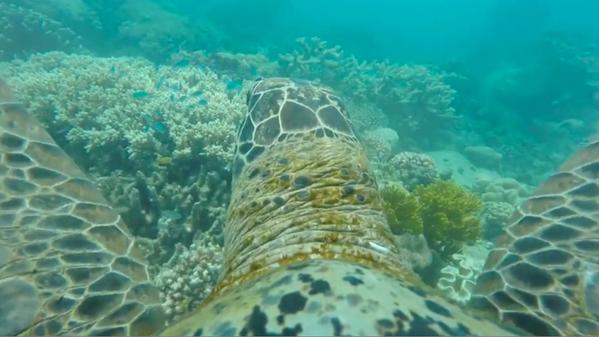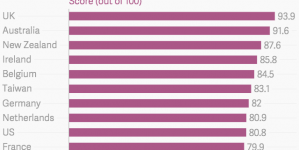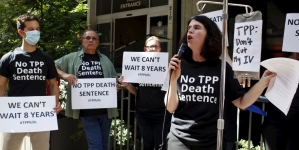-
Tips for becoming a good boxer - November 6, 2020
-
7 expert tips for making your hens night a memorable one - November 6, 2020
-
5 reasons to host your Christmas party on a cruise boat - November 6, 2020
-
What to do when you’re charged with a crime - November 6, 2020
-
Should you get one or multiple dogs? Here’s all you need to know - November 3, 2020
-
A Guide: How to Build Your Very Own Magic Mirror - February 14, 2019
-
Our Top Inspirational Baseball Stars - November 24, 2018
-
Five Tech Tools That Will Help You Turn Your Blog into a Business - November 24, 2018
-
How to Indulge on Vacation without Expanding Your Waist - November 9, 2018
-
5 Strategies for Businesses to Appeal to Today’s Increasingly Mobile-Crazed Customers - November 9, 2018
Australia Hails ‘Tremendous’ UN Barrier Reef Decision
The video comes as United Nations heritage body Unesco voted on 1 July not to put Australia’s Great Barrier Reef on its world danger list.
Advertisement
UNESCO’s World Heritage Committee held off designating the site as endangered, a move that would have been embarrassing for Australia. Australia’s 2050 sustainability plan for the reef proposes a range of actions in response to these threats, such as reducing pollution, restricting port development and permanently banning dumping of dredged material within the reef.
“This decision is an example of the World Heritage Convention and the multilateral system working effectively”, Australia’s Environment Minister Greg Hunt stated after the decision, also praising civil society for its role.
Recently, WWF and other environmental groups launched an effort to have the reef listed as “in danger” by the UNESCO cultural agency.
This gives a sigh of relief to the Australian government which is dependent on the reef to get it billions of dollars in tourism revenue every year.
Queensland Greens environment spokesperson, senator Larissa Waters, said it was “clear the World Heritage Committee is anxious about the Reef’s future and a number of specific concerns were raised during the meeting, including the need for adequate funding and legislation”.
GLADSTONE, AUSTRALIA – MARCH 7: In this handout photo provided by Greenpeace, Activists paint the message “Reef in Danger” on the side of coal ship Chou San on March 7, 2012 in Gladstone, Australia.
The world’s largest coral reef is in danger.
Great Barrier Reef table coral provides vital shade for passing fish.
As with all reefs, “there are real challenges such as climate change and water quality”, he said.
The project created issues with the environmentalists after they alleged that the coal mined from the Queensland area will be transported to Abbot Point Port through a railway line.
The federal and state governments welcomed the decision, claiming it as a victory for their Reef 2050 plan.
Unfortunately, pollution and climate change are posing serious threats to the Great Barrier Reef ecosystem, and WWF has been putting pressure on the Australian government to take the necessary steps to preserve this irreplaceable habitat.
He said progress reports on a plan to reduce nitrogen levels by 80 per cent and sediment by 50 per cent would go before the committee at the end of next year and again in 2019.
Advertisement
“We will achieve our first and second round of targets, and we will set an ambitious target for the post-2020 period in the coming weeks”, Hunt stated.





























